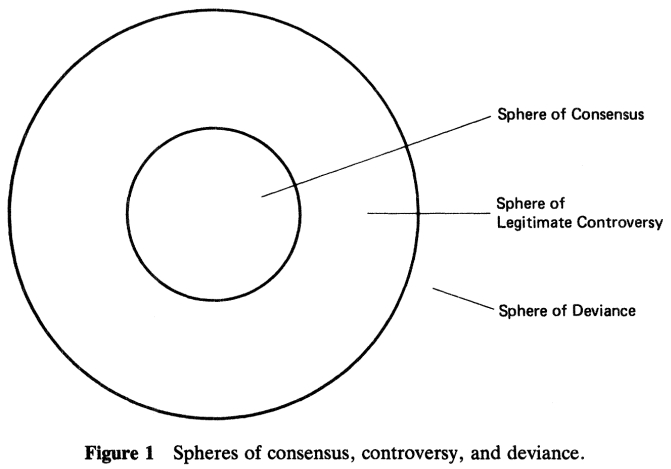 Pants on fire …I get the Energy IssueWatch Newsletter from Congress rag The Hill. In last Friday’s edition, reporter Ben Geman wrote, “Advocates of limiting emissions say it’s inaccurate to compare EPA rules to cap-and-trade proposals that collapsed on Capitol Hill last year.” This is, I suppose, progress. It’s a “she said” to the “he said,” better than simply passing on the Republican lie unopposed. But it still manages to avoid judging the veracity of the claim.
Pants on fire …I get the Energy IssueWatch Newsletter from Congress rag The Hill. In last Friday’s edition, reporter Ben Geman wrote, “Advocates of limiting emissions say it’s inaccurate to compare EPA rules to cap-and-trade proposals that collapsed on Capitol Hill last year.” This is, I suppose, progress. It’s a “she said” to the “he said,” better than simply passing on the Republican lie unopposed. But it still manages to avoid judging the veracity of the claim.
About the veracity there is little question. Cap-and-trade consists of two things: a cap on emissions and tradable permits. EPA is contemplating neither. It is therefore false, if the word “false” has any meaning, that EPA is implementing cap-and-trade. Yes, “advocates” say that. Because it’s true!
The fact that it’s true conveys something interesting and instructive to the reading public; the fact that advocates say it’s true conveys almost nothing. So why does Geman choose to report the latter rather than the former?
Journalist Daniel Hallin offered the following model in his book on the media and Vietnam:
 From The “Uncensored War”: The Media and Vietnam, by Daniel C. Hallin
From The “Uncensored War”: The Media and Vietnam, by Daniel C. Hallin
NYU’s Jay Rosen wrote a fantastic and widely linked post about this in early 2009, which I recommend. In short, the sphere of consensus contains things that “everybody knows” to be true, about which, as Hallin said, “journalists do not feel compelled either to present opposing views or to remain disinterested observers.” Think of the dire danger posed by the deficit, or coal’s purported cheapness.
The sphere of legitimate debate contains the meat and potatoes of journalism. “This is the region of electoral contests and legislative debates,” said Hallin, “of issues recognized as such by the major established actors of the American political process.” This includes everything about which “objective” journalists are not permitted to make assertions or draw conclusions; rather, they feel obligated to present both sides.
On the sphere of deviance, Rosen says:
Anyone whose views lie within the sphere of deviance—as defined by journalists—will experience the press as an opponent in the struggle for recognition. If you don’t think separation of church and state is such a good idea; if you do think a single payer system is the way to go; if you dissent from the “lockstep behavior of both major American political parties when it comes to Israel” (Glenn Greenwald) chances are you will never find your views reflected in the news. It’s not that there’s a one-sided debate; there’s no debate.
What’s key to understand about this model is that what ends up in the various spheres has very little to do with empirical or logical merit. These are not truth categories, they are categories of practice, shaped by social forces. In other words, they are deeply, intrinsically political, though “objective” reporters seem almost incapable of recognizing that they are engaging in political choices.
The right has been masterful in manipulating these spheres over the last few decades, dragging things that were once in consensus out into legitimate debate (torture is unacceptable), dragging things that were once legitimate debate into consensus (raising taxes is bad), and — perhaps most importantly — preventing things from entering consensus (cigarettes are harmful; climate change is happening). What conservatives have realized is that you shift things between spheres not with clever arguments but with social pressure. They repeat simple messages, loudly and through multiple media, and lean hard on those who question them (“working the refs”). If they need to get a lie pushed into the sphere of legitimate debate, they relentlessly repeat the lie and accuse anyone who identifies it as such as “biased.” This plays out on a large scale and over the long term — arguments about the proper role of government shift around, for example — but also in dozens of mundane, day-to-day episodes.
When I was in D.C. last week, I talked to a bunch of Capitol Hill reporters, Capitol Hill staffers, and policy wonks, and they all (especially the reporters!) agreed that political dialogue in the U.S. has become utterly debased. Political journalists are harried and click-driven, exposed almost exclusively to the perspectives of the powerful, and beset on all sides by bullies and spinners. Gossip and conflict are what sell. There’s no time and very little inclination to dig into the issues in any depth, which is what it would take to fact-check — rather than just report — the statements of people in positions of power. And even if there were time, it’s risky, just as likely to be punished as rewarded.
In that atmosphere, Republicans can say virtually anything they want, no matter how absurd, about energy and energy policy. If they all say the same thing, and repeat it enough, the press will pass it on as a legitimate claim. So Obama’s drilling policies are raising gas prices; removing oil subsidies is “raising taxes”; carbon policies are all cost and no benefit. Oh, and EPA is implementing cap-and-trade. It’s all legitimate debate. Who says otherwise? Y’know: advocates.



